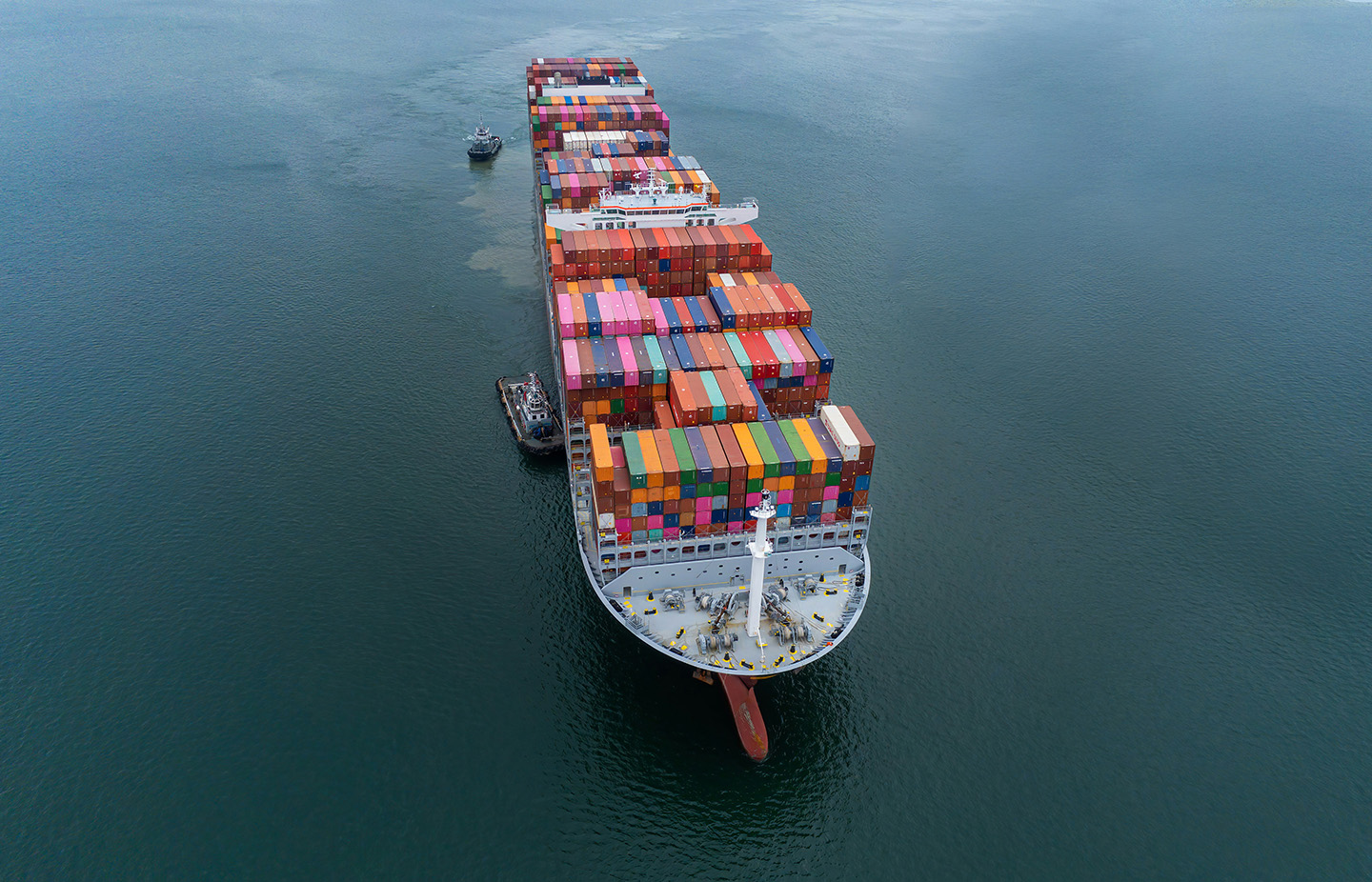
KLC welcomes civil discussion and disagreement about contemporary issues. Thus, the views expressed in our opinion pieces are not official KLC positions but those of the author.
By Robert Tatum
The Trump Administration’s latest wave of tariffs doesn’t just tax goods, it challenges our moral imagination. While these policies are often framed in terms of national interest, protecting jobs, and addressing trade imbalances, they raise deeper questions about how we view our economic relationships with others. From the perspective of Christian economics, an approach that unites theological reflection with economic analysis, these tariffs reflect not just a shift in policy but a drift away from values that affirm shared humanity, mutual flourishing, and just, global cooperation.
Even from a strictly economic standpoint, the new tariffs are unlikely to achieve their intended effects. Part of the problem lies in the deep uncertainty surrounding the policy. With no clear signal as to how long the tariffs will remain in place, businesses are unlikely to make the long-term capital investments required to shift production back to the United States. Building a new factory, hiring skilled labor, and retooling supply chains all take time, money, and confidence in policy stability. If a firm suspects that tariffs might disappear in six months, it’s more likely to wait it out or pass on the costs to consumers.
The economic case against protectionist tariffs is well-established: they raise prices for consumers, provoke retaliatory measures, and undermine the efficiencies gained through global trade. But what’s often missing in these debates is a moral and theological assessment of the kind of economic world we are shaping.
As I argue in a 2023 paper with Jie Ma, titled “Biblical Requisites and Implications for Economic Globalization,” globalization – despite its flaws – has theological roots in our shared humanity and the biblical call to community. God’s design, evident from creation through the teachings of Christ, affirms a world of interconnected people called into relationship, trade, and mutual aid. Tariffs that isolate and divide – particularly when deployed without a broader ethical framework – run counter to this biblical vision.
In the language of theologian Miroslav Volf, whose book Exclusion and Embrace informs this discussion, the Christian story calls us to embrace, not exclude. In Luke’s parable of the prodigal son, the father runs to welcome his wayward child, affirming the primacy of relationship over retribution. Similarly, Acts 2 describes the Day of Pentecost as a moment when language barriers fell and diverse peoples were united in understanding, a stark contrast to policies that seek to erect new economic walls.
Tariffs may seem like technical policy tools, but they send a message: we will go it alone. They treat international trade not as a web of human relationships but as a zero-sum game. This is the logic of the elder brother in Luke 15, who resents generosity and clings to narrow self-interest. But Christian economic ethics insists we are not just competitors, we are called to be neighbors.

This is not to say globalization should go unquestioned. My paper with Ma makes clear that economic globalization must be reformed, not sacralized. The Christian tradition demands we attend to those harmed by trade, both at home and abroad. But the answer to these injustices is not a reflexive retreat into protectionism, but reform rooted in justice and humility.
Micah 4 envisions a day when nations come together under God’s justice, beating swords into plowshares. Until then, we are called to “do justice” in the provisional structures we build. Tariffs that punish other nations or protect domestic elites at the expense of global neighbors violate that call. True economic justice requires rules and institutions that promote mutual understanding and support the vulnerable, especially those without political power or economic clout.
A Christian economics does not reject national interest, but it asks us to define it within the moral boundaries set by the gospel. Economic policy should not be driven by fear, resentment, or shortsighted retaliation. It should be animated by a commitment to the common good, both within our borders and beyond them. It should ask: What kind of society are we shaping with these policies? Whom do they protect? Whom do they harm? And do they reflect the kind of neighbor we are called to be?
A rightly ordered patriotism, shaped by Christian love, seeks the flourishing of one’s nation in ways that do not come at the deliberate expense of others. It recognizes that we are stewards of our own communities – and participants in a global fabric where peace and prosperity are intertwined. As we confront complex challenges – from economic inequality to technological change to geopolitical fragmentation – our response should not be withdrawal and exclusion, but courage and reform, grounded in love of neighbor and love of truth.
In the end, the real cost of tariffs may not be measured in dollars alone. It may be in the erosion of a more just, more connected world – the very kind of world Christian faith calls us to help build.